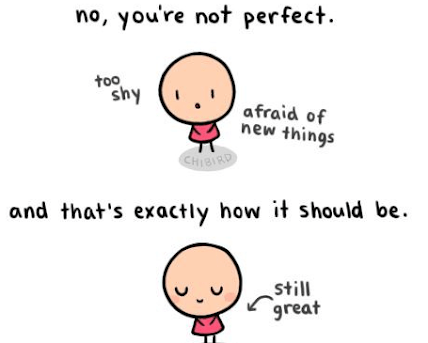Are You A Failed Optimist?

‘Have a positive attitude’ is often said regardless of the trouble.
As stated by the self-help industry, it is a philosophical idea that ‘you can change anything by expecting positive results any given time’. Positive thinking is not easy when life is a mess, you need to fight every urge of doubts. Having no support makes it even harder, staying motivated is a tough task, quitting urge and sulk into grief is greater and easier and that is when self-help industries come into the picture. It is easier to preach instead of following, and if the preaching makes you money, then why not get into the industry, and inspire others? This generation of people is the least motivated even when the sources are easily available. Maybe it is the same source that made them lean on sources more. After all, this is the age of developing technology, generating languid humans. We don’t go hunting anymore; we get our food home delivered, service available has made it easier to survive. This, in turn, reduced physical activity and that energy is now utilized by emotions. All of us love being served and in this context, the self-help industry delivers this service with a variety of motivators and stories asking one thing- ‘Be positive’.
Interestingly, statistics claim that 80% of self-help book customers are repeat customers. Now, what could that indicate?
It’s a service and you are the lazy customers, once you start feeling well and motivated after reading the book you fall deeper into it and look for more to satisfy yourself. It is like having the same food at the same restaurant for the ninetieth time. Over the years, positive thinking has become the center of the growing self-care industry and affirmations radiate in this industry, but what are these affirmations, are they something we lack or something we already own? Turns out it totally depends on your thinking.
But what happens when you force yourself to think positive?
In a study published by the University of Waterloo, Psychologist Joanne Wood, and her colleagues found that affirmations work on self-esteem. Participants with high self-esteem felt slightly better moods after repeating these affirmations while participants with lower self-esteem, positive affirmations backfired, resulting in worse moods. Forcing ourselves to think positive in all situations can do more harm than good. For instance, when an optimist fails, he feels guilty of not being positive enough and cares less about the real reason for failure and that promotes dissatisfaction and hampers growth. An unhappy person on the inside won’t change anything in the world, and may instead release their pent-up frustration on others and blame outsiders for their unsuccessful life. This spreads sad emotions.
How can you stop the spread of sad emotions?
1. Don’t be someone else.
The most successful people know their worth. They value their individuality. While average people judge themselves and often devalue themselves. This lowers self-esteem. Self-esteem is your value, how much you are worth and what you are worth; and your value is only decided by you, nobody else got that right and money don’t decide that value either. Your thoughts and your experience decide and if you are copying someone else you are neglecting the opportunities to develop own thoughts and experience.

2. Believe in your affirmations — or don’t do affirmations.
Affirmations work when you believe in them. Repeating just lines of ‘I am enough’ won’t renew your world, it is the belief that renews. They will be empty lies making you feel more despair when they carry no belief. It’s better not to lie to own self. If you truly believe you got hard bad luck then don’t go saying ‘I got good luck’, you may feel judged. You are not accepting and constraining yourself. Instead, explore why you believe such a thing, and the answer may amaze you. Always know, you decide what you are and nobody else.
3. Appreciate negative emotions.

Our society teaches us to smile even when life is rolling down, it taught us to keep looking for the sun and shut the negativity in a box of ‘do not touch’. Society doesn’t know ‘how to deal with these negative feelings’, it somehow learned to ignore these feelings. But it is these negative feelings that teach you the most. Why would you get angry if you do not care?
It is okay to look down, it is okay to look at the ocean when the sun’s not around, it is okay to open the box of ‘do not touch’ and free all those pent-up emotions we kept inside because of the fear of being judged. Remember, downhill is still a route. Worshipping positive approach blindly will only make you feel inferior and confused. Like yin and yang, positive and negative thinking goes hand in hand. You cannot skip one, to understand own self both are equally important. Positive thinking only works when we have the desired outcomes, therefore when the goal is self-betterment think without being judgmental. And next time you buy a book for self-help know it is self-help, you need to help yourself the book is only for reading, and increasing knowledge. If you cannot help your self, no self-help book can.



